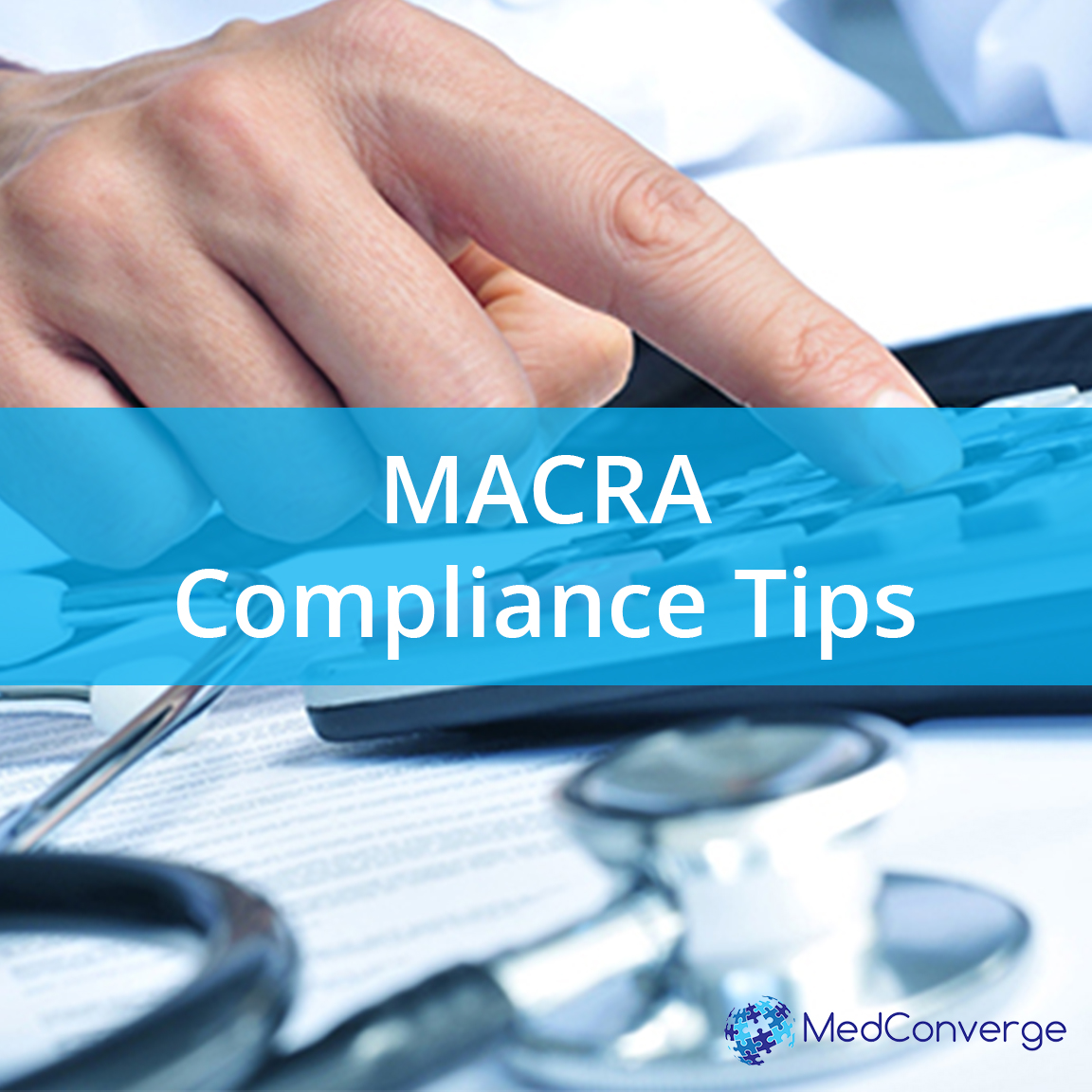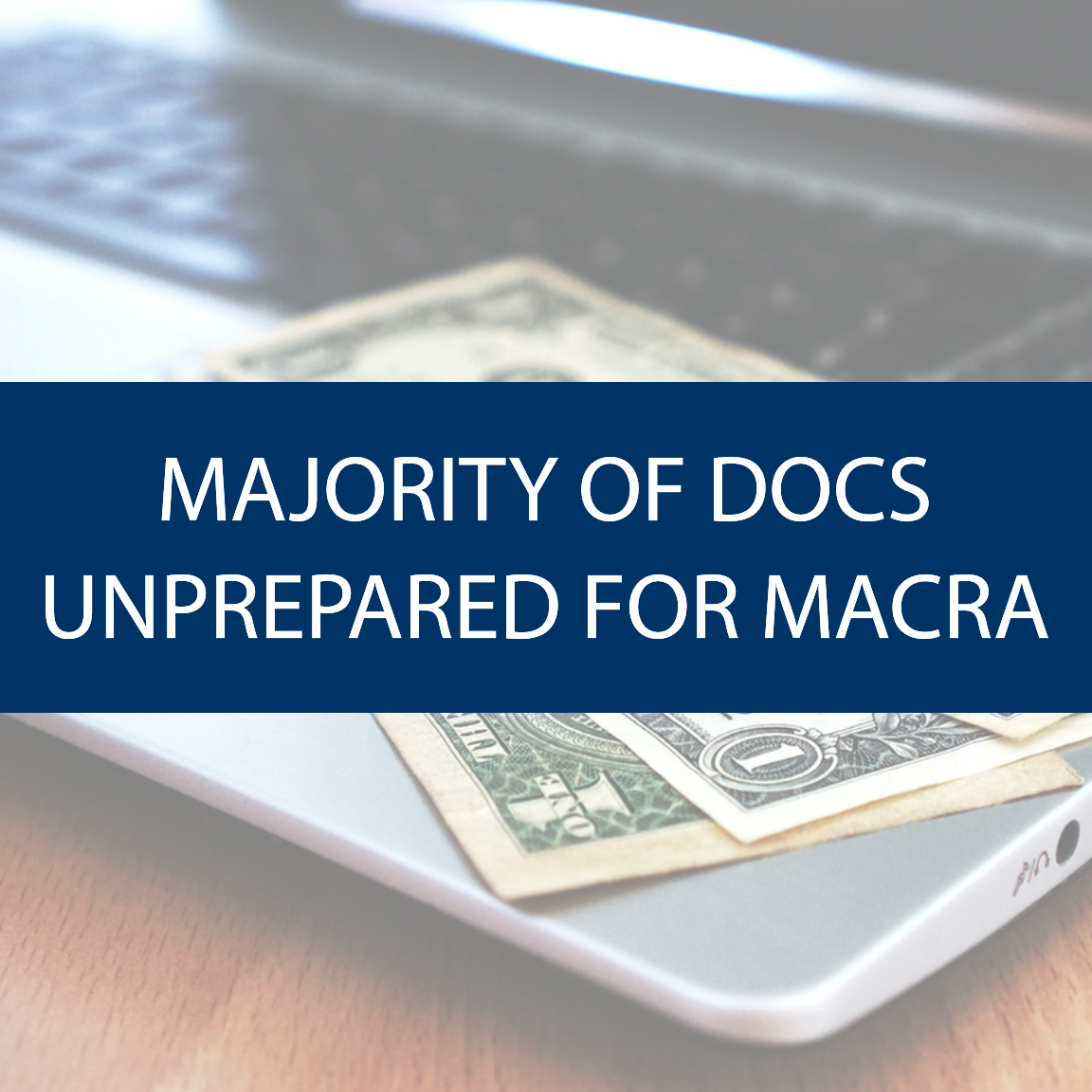Medicare Access and Chip Reauthorization Act (MACRA) will have a tremendous impact on the business and health care models in healthcare establishments throughout the country. MACRA is being implemented partially in most establishments voluntarily, to get a taste of what is yet to come and is expected to be fully implemented by the end of 2018. Failure to incorporate the new methodologies will result in the establishment risking up to 8 percent of the Medicare Part B (physician payment).
Here are 10 tips to make it easy for small practices to comply with the MACRA norms-
- Keep your staff well aware of the proposed regulations. This will help counter any surprises that may arise in future, especially during the first year of implementation, and will effectively minimize any confusion that may arise due to the same. Make sure that the team documenting patient information has complete understating of the changed record keeping processes.
- Consider how this will impact your patient population. Keep tabs on patients with chronic illnesses and work towards improving patient engagement, recalls and educating them about follow- ups.
- By now you should have a clear idea of your shortcomings. This assessment can then be used as the base for improving on those weaker domains, thus boosting your performance significantly. Having a game plan ready will help improve performance significantly.
- Stay in touch with a suitable support center. CMS has set up a number of assistance centers for clinicians who are eligible for Quality Payment Program (QPP). These establishments incur no cost to the medical facility and can be approached for any help with operating their business. These centers primarily cater to small practices that cannot afford their own in-house, technical support center.
- Adopting these practices early will give the physicians a favorably long learning period, thus allowing them to hone their skills to perfection. It will also help small practices to stay in touch with reality about the available resources and their own inadequacies in terms of technical knowledge. This will help them to procure additional assistance in time.
- Reviewing quality measures beforehand will also help plan your next move. The core quality measures that a facility has to adhere to are available on the QPP website. You can forward this information to your vendor and take the dialogues forward in improving the quality measures.
- Opt for automation. Since this is a relatively new system, one can easily incorporate automation for smaller, simpler practices, which will help improve efficiency of the entire system.
- Most health care institutes outsource their billing to reduce workload and increase efficiency. This is why it is important to work closely with them during the first few months to ensure that they are complying with the right ICD-10 codes, thus closely tracking the billing reports. You should also keep tabs on any updates on the guidelines that are put out by the Centers for Medicare & Medicare Services (CMS).
- Keep accurate records of all the clinically relevant information regarding the coding processes. This information should include any underlying conditions that are relevant to the current diagnosis and treatment.
- It is important to have a clear understanding of short and long-term strategies, which will make it easy to adapt and adjust to the new changes appropriately. It is easier to incorporate the new practices in steps, slowly over time rather than revamping the entire mechanism at once. This will give your staff and your patient’s time to adjust to the new methods, thus easing the transition significantly.
At MedConverge, we can help you to ensure that your billing processes comply with the MACRA guidelines, thus ensuring that your health care establishment continues to operate without any fear of penalties due to faulty billing mechanisms. For more information about our services, do visit our website at https://www.medconverge.com/

References:
- Buckholtz, R. (2016, August 08). 10 Tips for MACRA Preparation. Retrieved April 23, 2017, from www.aapc.com: https://www.aapc.com/blog/35985-10-tips-for-macra-preparation/
- How to Prepare for Medicare’s New Payment Systems. (2016, October 14). Retrieved April 23, 2017, from www.ama-assn.org: https://www.ama-assn.org/practice-management/how-prepare-medicare%E2%80%99s-new-payment-systems
- How will MACRA impact 2017? (2016, November 14). Retrieved April 23, 2017, from www.blog.drchrono.com: http://blog.drchrono.com/macra-mips-ehr-compliance-information/



